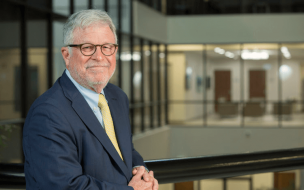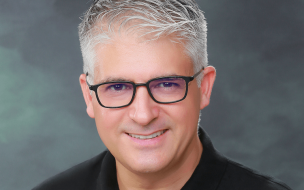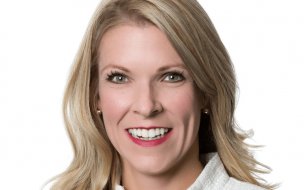With industries undergoing rapid change, largely due to technologies like artificial intelligence (AI), the skills you acquire and develop need to respond to future disruptions quickly, long after graduation.
An alumni network with strong links to varied global sectors is a sure-fire way to ensure a strong return on investment.
Margaret-Ann Cole (pictured below, right) is president at talent management consultancy, Crenshaw Associates, and completed the TRIUM Global Executive MBA in 2004 as part of the program’s second cohort.
She chose the program due to the prestige of the schools involved—HEC Paris, London School of Economics and Political Science (LSE), and NYU Stern—as well as the international networking opportunities available.
The TRIUM EMBA boasts 1,000 alumni spread out across 90 countries worldwide. Taken individually, HEC Paris has 52,000 alumni in 132 countries. London School of Economics and Political Science has 148,000; NYU Stern over 110,000, including 500 CEOs. Combining the networks of the three schools, TRIUM EMBAs have the ability to access a pool of over 300,000 talented alumni worldwide.
As globalization is vital in the human resources and talent acquisition environment, the fact that there were multiple nationalities in her class was a huge advantage. Today, 28 nationalities are represented in the TRIUM EMBA class.
Over the past 15 years, Margaret-Ann has been able to see the impact that her EMBA has had long-term on her career. Her ambition to become president at a consultancy was born during her EMBA. “TRIUM helped me to achieve my dream,” she says.
Margaret-Ann identifies AI and tech innovation as the biggest disrupter to the human resources and talent acquisition sector right now. “When individuals graduate from college they don’t even know what jobs they will have because the jobs don’t exist yet.”
She’s confident that the skills she learned from TRIUM, that allowed her to harness and adapt to globalization when she first started her EMBA, will be just as supportive when it comes to responding to new technology now.
“TRIUM has helped me to see the bigger picture and how each organization acts within the ecosystem of business,” Margaret-Ann explains.
“It changed my life, teaching me important methods of collaboration, particularly virtual collaboration which is crucial now as you often have to work remotely with people across the world.”
The collaborative approach of the TRIUM Global Executive MBA and its student network is something that Todd Wade (pictured below, right), a cybersecurity and tech consultant, also highlights as a major plus.
“We learnt just as much from each other as we did from the taught program,” he says.
TRIUM’s Module 7 is an event created by alumni to follow the program’s six core modules and focussed on lifelong learning. It brings former TRIUM students together each year for networking, upskilling sessions and lectures with industry experts.
Todd is still in constant communication with his classmates, and he says the relationships he forged through his EMBA have given rise to multiple business opportunities across the years since he graduated in 2009.
“Our alumni base is fantastic and very active. I’m involved with advising at least four TRIUM-related businesses and people constantly reach out to me for input on tech and cybersecurity.
“TRIUM provides a strong network that continues to thrive after the EMBA. This is where people are going to find significant value out of it.”
Dr Ziad Alalyan (pictured below, right) became CEO of Central Circle, a medical distribution company in the Arabian Gulf, after graduating from the TRIUM EMBA earlier this year.
With a background in healthcare, Ziad thinks that his competency in dealing with people from varied cultural backgrounds aided him with the multinational exposure that the TRIUM EMBA provided.
Through the program, he learned new skills in marketing, finance and leadership which he is now applying in his current role. The second module of the EMBA, Technological Disruption and Entrepreneurship is based in California and includes courses such as Corporate Finance as well as the new course Technological Megatrends.
“Technology and digitization has been the biggest disruption to the healthcare industry,” Ziad says, “from electronic medical records and e-prescriptions to robotic-assisted surgery.
“The tech industry has become an integral part of everyday medicine and I believe this is just the beginning.

“Our time in California as part of the MBA was extremely relevant to this topic. We had the opportunity to meet some of the most influential people in medical tech and this was very valuable.”
Ziad assures that there are many opportunities in healthcare in the Middle East but that the main challenge is non-residents gaining entry. “One must have a local partner who is capable and knowledgeable in the area to be able to navigate the very bureaucratic system in the Middle East,” he explains.
“TRIUM provides many, many networking opportunities that are vital for such endeavors.”
It is through a strong international alumni network, Ziad says, that professionals can gain easier access to these lucrative yet tricky-to-handle business locations.








